Site blog
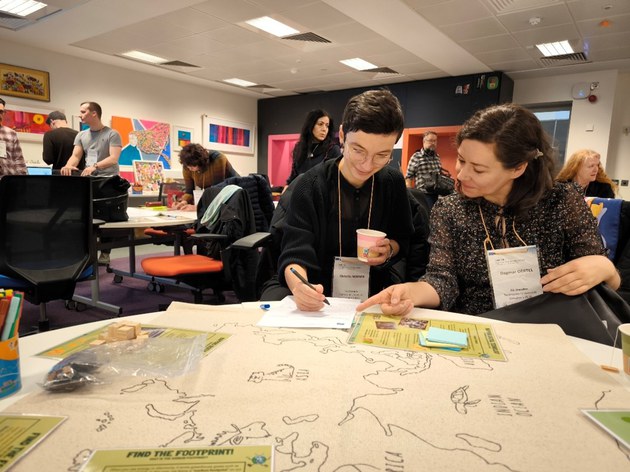
For today's blog, we bring you the article that was prepared and initially published here, for the experience of a couple of ZLSB teachers that joined our recent TAP-TS workshop in Ireland.
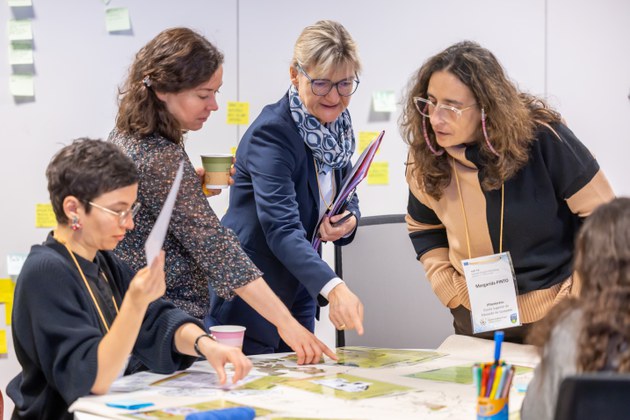
The aim of the workshops on 17.02. and 18.02.25 at University College in Dublin was to test the TAP-TS materials on the sustainability goals created in recent years with regard to their use in teaching and to discuss them with each other. The ZLSB at TU Dresden therefore hosted experts with a range of previous experience. They included Katrin Günther, Katrin Lange, Maria Melchior-Tunc (university teachers), Dr. Peggy Germer (BQL project coordinator), Alexander Klippstein (BQL GS subject coordinator), Dagmar Oertel (BQL.Digital), Christin Nenner (BQL.Digital).
The program at the University College of Dublin was framed by numerous opportunities to network with partners of the TAP-TS project, but also with other Teacher Academies.
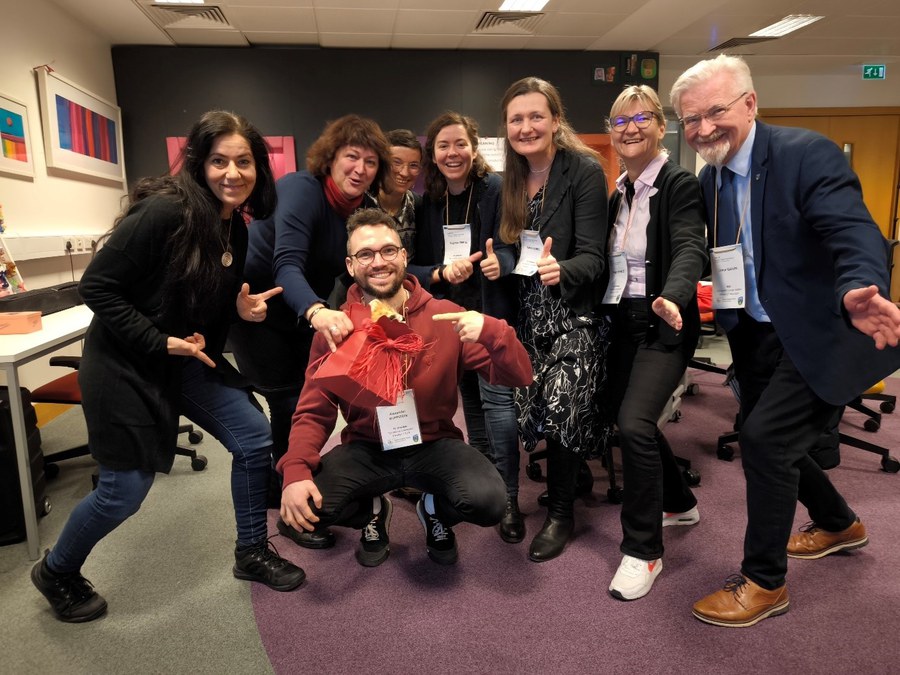
Country-specific ideas for the continuation of joint activities in the future as well as evaluation results of the three-year project will be presented in June as part of the 20th anniversary celebrations of the ZLSB.
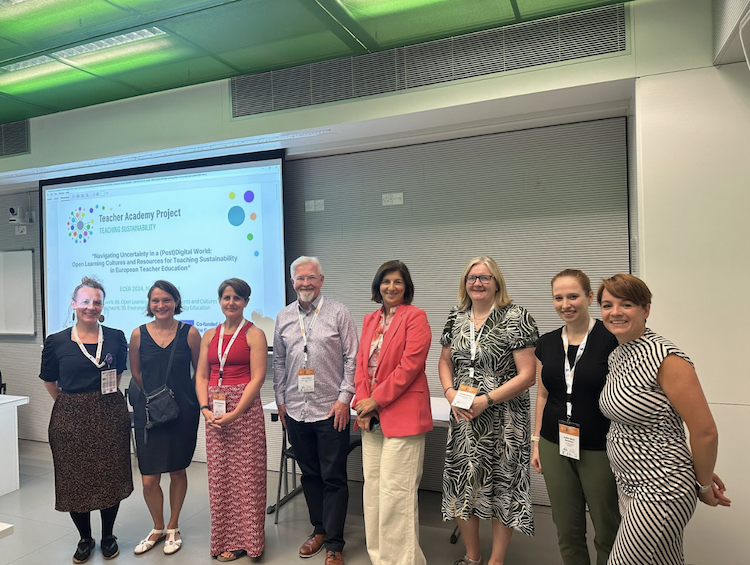
Partners from the Teacher Academy Project - Teaching Sustainability (TAP-TS) gave a full symposium at the recent European Conference on Educational Research in Cyprus. Under the title: “Navigating Uncertainty in a (Post)Digital World: Open Learning Cultures and Resources for Teaching Sustainability in European Teacher Education” the symposium explored and bridged new media sustainability and teacher education themes in relation to TAP-TS.
The symposium explored aspects of uncertainty in a world characterised by digital technology with regard to ESD in Europe drawing on data and experience from Teacher Academy Project-Teaching Sustainability (TAP-TS). Our research and analysis is anchored in a shared theoretical basis in social-constructivism and in particular critical-constructivist perspectives on social learning with a foundation - in the broadest sense - in critical theory.
The first paper "Coping with Uncertainty in Education for Sustainable Development in a Digital World" Nina Grünberger (TU Darmstadt) Judith Maria Neuthard (TU Darmstadt) and Klaus Himpsl-Gutermann (Pädagogische Hochschule Wien) discussed the symposium question on a general level. Introducing and contextualising the topic firmly with open education and the post-digital world the presentation also introduced relevant questions for educational practice and schools which provided a theoretical framing of the inherent uncertainties in pedagogy ESD and digitality.
The second paper presented "Digital media and open learning communities for international sustainability teacher education". Rachel Bowden (TU Dresden University of Technology) Pavlina Hadjitheodoulu (Cyprus Pedagogical Institute) Nikolaos Palavitsinis (EUMMENA) and Mats Westerberg (Luleå University of Technology) had a central focus on questioning how educators’ transdisciplinary relationships across boundaries of academic disciplines institutions (pre- and in-service teacher education primary and secondary schools civil society) and nations facilitated in part through digital media have fostered improvements and even transformations in sustainability education. This offered a thoughtful reflection on how new media have enabled our transdisciplinary community of practice and some challenges and limitations.
The third and final paper of the symposium was titled “Engaging Materials: Fostering Green Values and Sustainable Lifestyle choices through open Educational Resources”. In this presentation Conor Galvin (University College Dublin) Elena Revyakina (Pädagogische Hochschule Wien) Rachel Farrell (University College Dublin) and Joanna Madalińska-Michalak (University of Warsaw) looked at how TAP-TS materials and events engage the challenge of educating towards more sustainable ways of living requires a considerable change in what is taught and how teachers are prepared and supported to meet this change. This provided a discussion of teacher engagement and reflection with the project activities and resources.
In her closing commentary Professor Kondratjuk reflected on the potential of transdisciplinary teacher education for navigating educational and socio-ecological uncertainties and the ways TAP-TS seeks to address this. She noted how the TAP-TS project engages substantively with this challenge at a European level. The project centres on designing assembling testing and validating Learning & Teaching Packages (LTPs) - sets of novel and innovative OERs that take as their start-points the EU GreenComp framework for teaching and learning for sustainability and build towards reflective-engagements that foster values agency and informed life-choices - and help teachers navigate this complex but important area of education.
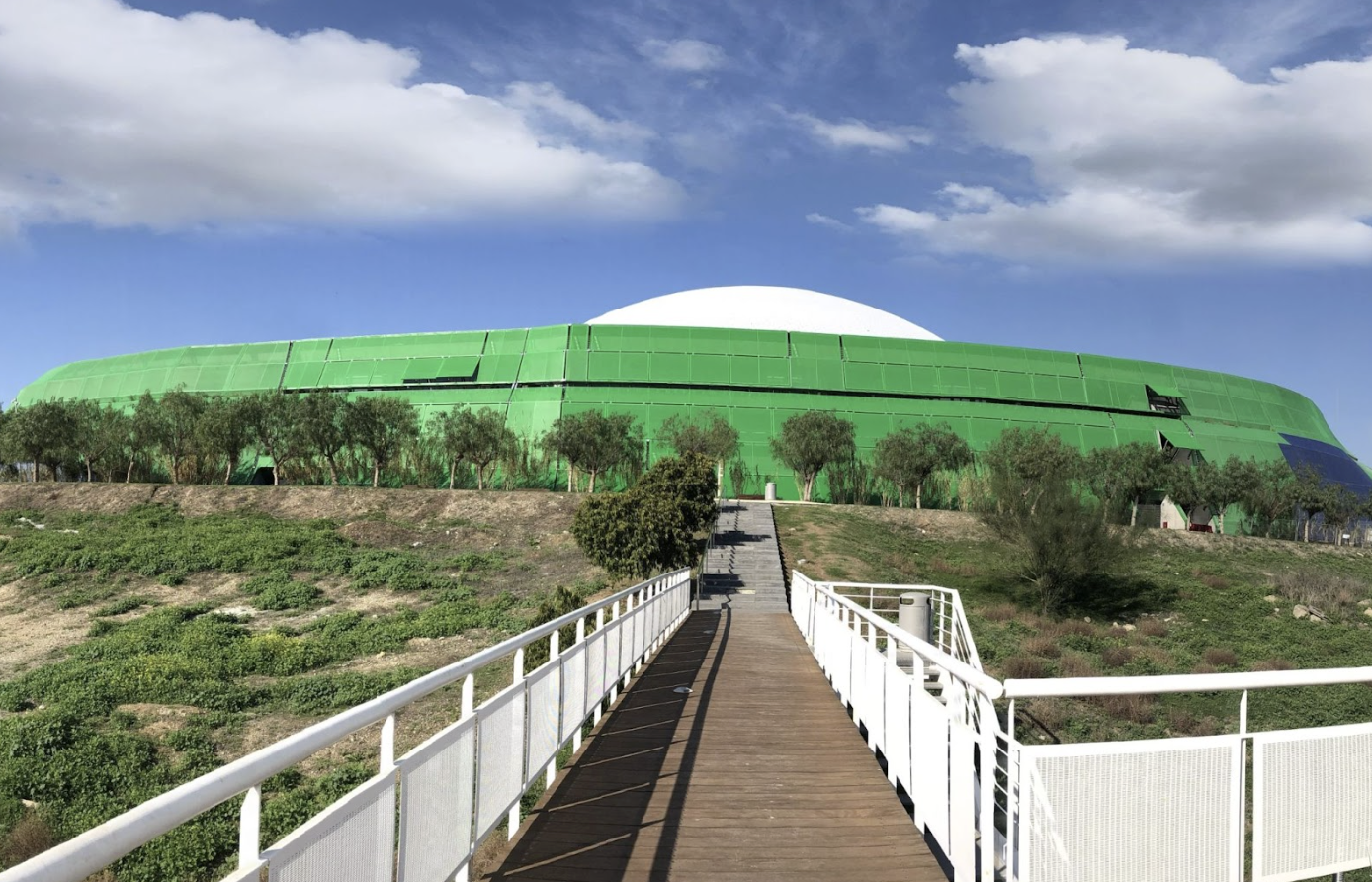
Our location in the beautiful and innovative “Stelios Ioannou” Learning Resource Centre at the University of Cyprus was perfect!”
Rachel Bowden
